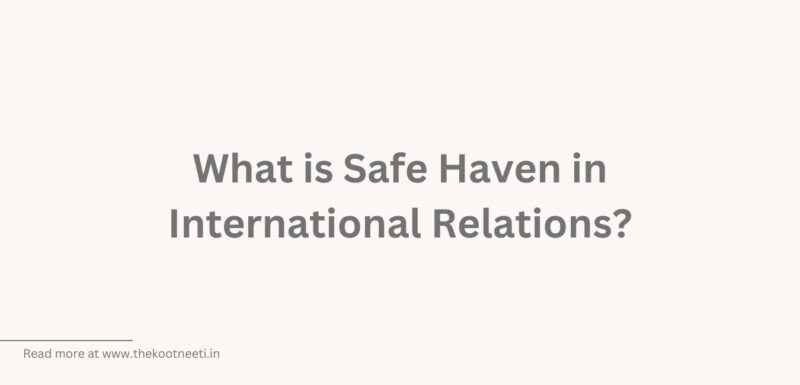What is Safe Haven in International Relations?

A safe haven is a place where people can seek refuge and protection from violence, persecution, or other threats. Safe havens can be established for a variety of purposes, including providing shelter for refugees and displaced persons, protecting civilians in conflict zones, or providing a secure environment for the delivery of humanitarian aid.
Safe havens can be established by governments, international organizations, or non-governmental organizations (NGOs). They can take many forms, including camps, shelters, or designated areas within a country.
The establishment of safe havens can be a complex and challenging task, as it may require the cooperation of multiple parties and may be subject to security and logistical constraints. Safe havens can also be controversial, as they may be seen as a way of separating civilians from combatants, or as a way of protecting certain groups of people at the expense of others.
Efforts to establish and maintain safe havens are often an important part of efforts to protect civilians and to address humanitarian crises, and they can play a crucial role in providing protection and assistance to those in need.
Economic and Financial Tax Havens
An economic or financial tax haven is a jurisdiction that offers low or no taxes on certain types of income, as well as a high degree of secrecy and confidentiality, in order to attract foreign businesses and individuals. Economic and financial tax havens are often chosen for their low tax rates, which can make them attractive for companies and individuals looking to minimize their tax burden.
Economic and financial tax havens can take many forms, including offshore financial centers, free-trade zones, and special economic zones. They may be located in countries with a high degree of political stability and a favourable legal and regulatory environment, and they may offer a range of financial services, such as banking, insurance, and asset management.
Economic and financial tax havens have been the subject of controversy, as they can be used to evade taxes and to hide financial assets from regulatory authorities. They have also been criticized for contributing to inequality and for enabling tax avoidance by companies and wealthy individuals.
Efforts to address economic and financial tax havens often involve measures to increase transparency and to strengthen international cooperation on tax issues, as well as efforts to reform national tax systems and to reduce the incentives for companies and individuals to use tax havens.


















